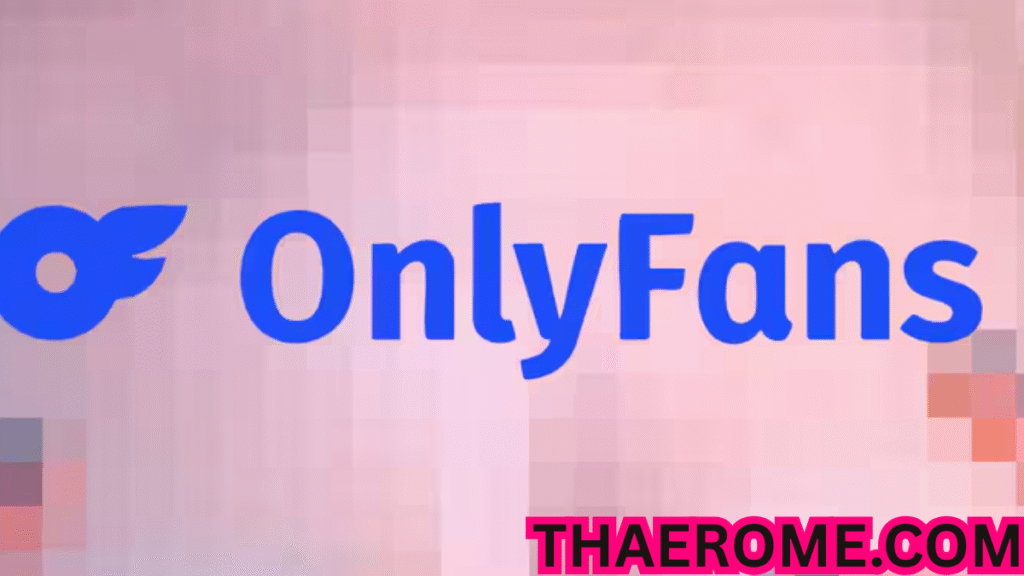Introduction to OnlyFans
OnlyFans is a subscription-based content platform that has transformed how creators connect with their audiences, particularly in the adult entertainment industry. Founded in 2016 by British entrepreneur Tim Stokely, the platform initially served as a space for influencers, fitness trainers, musicians, and other content creators to monetize exclusive content. Over time, it gained global recognition for being a hub for adult performers who sought financial autonomy and direct engagement with fans.
As digital culture evolved and creators looked for new monetization strategies, OnlyFans capitalized on the demand for creator-controlled income streams. The platform allows users to upload photos, videos, and livestreams behind a paywall, which can only be accessed through paid subscriptions or tips. While adult content is a significant part of OnlyFans’ identity, it also hosts creators in genres such as fitness, cooking, education, and comedy.
The Rise and Popularity of OnlyFans
The explosive growth of OnlyFans can largely be attributed to the COVID-19 pandemic, which forced millions into lockdown. Many workers lost their jobs and turned to online platforms for income. Simultaneously, consumers were seeking entertainment online, leading to a surge in OnlyFans subscriptions and creator sign-ups. Celebrities like Cardi B, Bella Thorne, and Tyga joined the platform, bringing mainstream attention and blurring the lines between adult content and celebrity culture.
Unlike traditional adult websites, OnlyFans provides a more personalized experience. Fans can message creators, request custom content, and engage in exclusive interactions, making the platform feel intimate. The platform’s unique model also appealed to those who valued control over their content and earnings. This user-centric model reshaped the digital content landscape by prioritizing direct monetization over ad-based revenue.
Financial Model and Revenue Generation
OnlyFans operates on a simple financial model. Creators set subscription fees for their fans and earn additional income through pay-per-view messages, tips, and exclusive services. The platform takes a 20% commission from creator earnings, while the remaining 80% goes to the content creator. This model contrasts with platforms like YouTube or Instagram, where monetization is dependent on third-party advertisements or brand partnerships.
Some top creators have reported earning thousands or even millions of dollars monthly. The transparency and consistency of income have made it an attractive alternative to traditional employment, particularly for marginalized groups or individuals in creative industries that often lack financial stability. OnlyFans also offers promotional tools, insights, and analytics to help creators grow their audience and optimize income.
Social and Cultural Impact
OnlyFans has significantly altered conversations around sex work, digital labor, and body autonomy. By providing a legal and relatively safe avenue for sex workers to earn a living, it has helped reduce stigma and enabled many to regain agency over their careers. However, it has also sparked debates over the commodification of intimacy, exploitation, and the blurry boundaries between empowerment and objectification.
The platform has been both praised and criticized by feminists. Supporters argue that OnlyFans allows women to control their image, set boundaries, and earn money on their terms. Critics, however, caution that not all participation is freely chosen and that economic hardship can coerce individuals into joining platforms like OnlyFans. These discussions reflect broader societal questions about labor, consent, and agency in the digital age.
Controversies and Challenges
Despite its popularity, OnlyFans has not been without controversy. In 2021, the platform announced it would ban sexually explicit content due to pressure from banking partners and payment processors. The decision sparked backlash from creators who built the platform’s success. Within days, OnlyFans reversed the decision after facing intense criticism, reaffirming its commitment to adult content. This incident highlighted the vulnerability of adult creators to corporate interests and regulatory pressures.
Security and privacy are ongoing concerns. Several data leaks have exposed creator content, raising questions about platform safety and copyright enforcement. Additionally, underage users attempting to sell explicit content have raised legal and ethical issues, prompting stricter verification and monitoring protocols by the company.
The Role of Technology and Privacy
OnlyFans leverages basic but efficient technology. Its platform allows easy content uploads, subscription management, messaging, and tipping. However, because it involves adult content, it has to maintain rigorous moderation systems and age-verification technologies. The platform uses third-party software to verify identities and ensure that creators meet legal requirements.
Privacy remains a significant issue. Many users and creators operate under pseudonyms to separate their OnlyFans activities from their personal lives. However, the risk of doxxing, leaks, and exposure remains. The lack of anonymity protection has led to cases where creators lost jobs, faced family estrangement, or endured online harassment when their involvement became public knowledge.
OnlyFans Beyond Adult Content
Although adult content dominates public perception of OnlyFans, the platform has made attempts to diversify. It launched “OFTV,” a non-explicit video streaming service where creators can showcase cooking tutorials, fitness routines, interviews, and more. The aim is to rebrand OnlyFans as a general-purpose creator platform that’s suitable for all types of audiences.
Fitness trainers, musicians, chefs, and educators have used OnlyFans to share exclusive lessons or behind-the-scenes content with paying subscribers. This pivot to general content demonstrates that the platform wants to attract a broader user base and reduce reliance on adult entertainment. However, the association with adult content continues to define its brand.
Legal and Ethical Considerations
From a legal perspective, OnlyFans must navigate a complex regulatory landscape. It is subject to laws governing adult content, taxation, copyright, and financial transactions. The platform employs legal teams to ensure compliance, especially in regions where laws around adult content and online payments are stringent.
Ethically, questions continue to arise about exploitation, consent, and content regulation. Ensuring that all creators are participating willingly and that no illegal material is distributed is a major responsibility. OnlyFans claims to have strict guidelines and enforcement policies, but critics argue that moderation can be inconsistent and that loopholes can be exploited.
Global Expansion and Localization
OnlyFans is available in over 100 countries and supports a global creator community. However, its success varies by region depending on cultural acceptance, internet access, and legal frameworks. In more conservative societies, OnlyFans faces censorship and social backlash, making it difficult for creators to operate openly.
Localization efforts have included translating the platform into various languages and offering customer support in multiple regions. However, regional payment gateways and banking compliance remain challenges. As the company grows internationally, adapting to local norms and regulations will be critical for sustained success.
Future Outlook of OnlyFans
The future of OnlyFans is uncertain yet full of potential. As competition increases with similar platforms like Fansly, Patreon, and AVN Stars, OnlyFans must innovate and evolve. It may continue to expand into mainstream content or invest in better tools for creators to manage their business. Advanced analytics, marketing integrations, and educational resources could improve user experience and earnings potential.
There’s also potential for the platform to integrate blockchain or cryptocurrency for greater anonymity and security. Additionally, as social attitudes toward sex work evolve, OnlyFans could play a central role in shaping the future of digital labor and online monetization. Its trajectory will likely depend on how it balances creator needs, public perception, and regulatory compliance.
Frequently Asked Questions (FAQs)
What is OnlyFans primarily used for?
OnlyFans is primarily used as a content subscription platform where creators can earn money by sharing exclusive photos, videos, and messages. While it is known for adult content, it also hosts creators in areas like fitness, cooking, music, and education.
Is OnlyFans legal?
Yes, OnlyFans is legal in most countries where it operates. However, the legality of specific types of content can vary by region, and the platform enforces strict rules to comply with local laws.
How do creators make money on OnlyFans?
Creators earn money through subscriptions, tips, pay-per-view content, and private messages. OnlyFans takes a 20% commission from all creator earnings.
Can you use OnlyFans without posting adult content?
Absolutely. Many creators on the platform do not post adult content. They use it for sharing exclusive behind-the-scenes content, tutorials, music, or fan engagement.
Is OnlyFans safe and secure to use?
While OnlyFans uses encryption and identity verification to maintain safety, risks such as content leaks and privacy breaches exist. Users should take precautions when sharing personal information or media.
Why was there controversy about OnlyFans banning adult content?
In 2021, OnlyFans briefly announced it would ban explicit content due to pressure from financial institutions. The backlash was immediate and severe, leading the company to reverse the decision. It highlighted how dependent the platform is on adult creators.
Who owns OnlyFans?
OnlyFans was founded by Tim Stokely and later acquired by Fenix International Limited. As of 2021, Leonid Radvinsky, an entrepreneur known for his involvement in adult websites, owns a majority stake in the company.
Can content from OnlyFans be leaked or stolen?
Yes, despite platform protections, content leaks have occurred through screen recordings or hacked accounts. Creators are encouraged to watermark content and report stolen material.
Is it possible to stay anonymous on OnlyFans?
Creators can use stage names and hide their identities from subscribers, but OnlyFans itself requires real identity verification for compliance. Anonymity from the public is possible but not guaranteed.
Does OnlyFans have an app?
OnlyFans does not offer an official app on mainstream app OnlyFans stores due to its adult content. However, its web platform is mobile-friendly and accessible through browsers.
Conclusion
OnlyFans represents a significant shift in how creators monetize their content and how audiences consume exclusive material. It has democratized content creation by allowing individuals to profit directly from their work without the need for intermediaries. While it faces challenges related to regulation, security, and public perception, its impact on the digital economy is undeniable. Whether for adult content or general creativity, OnlyFans has carved a niche that continues to grow and influence online culture.


